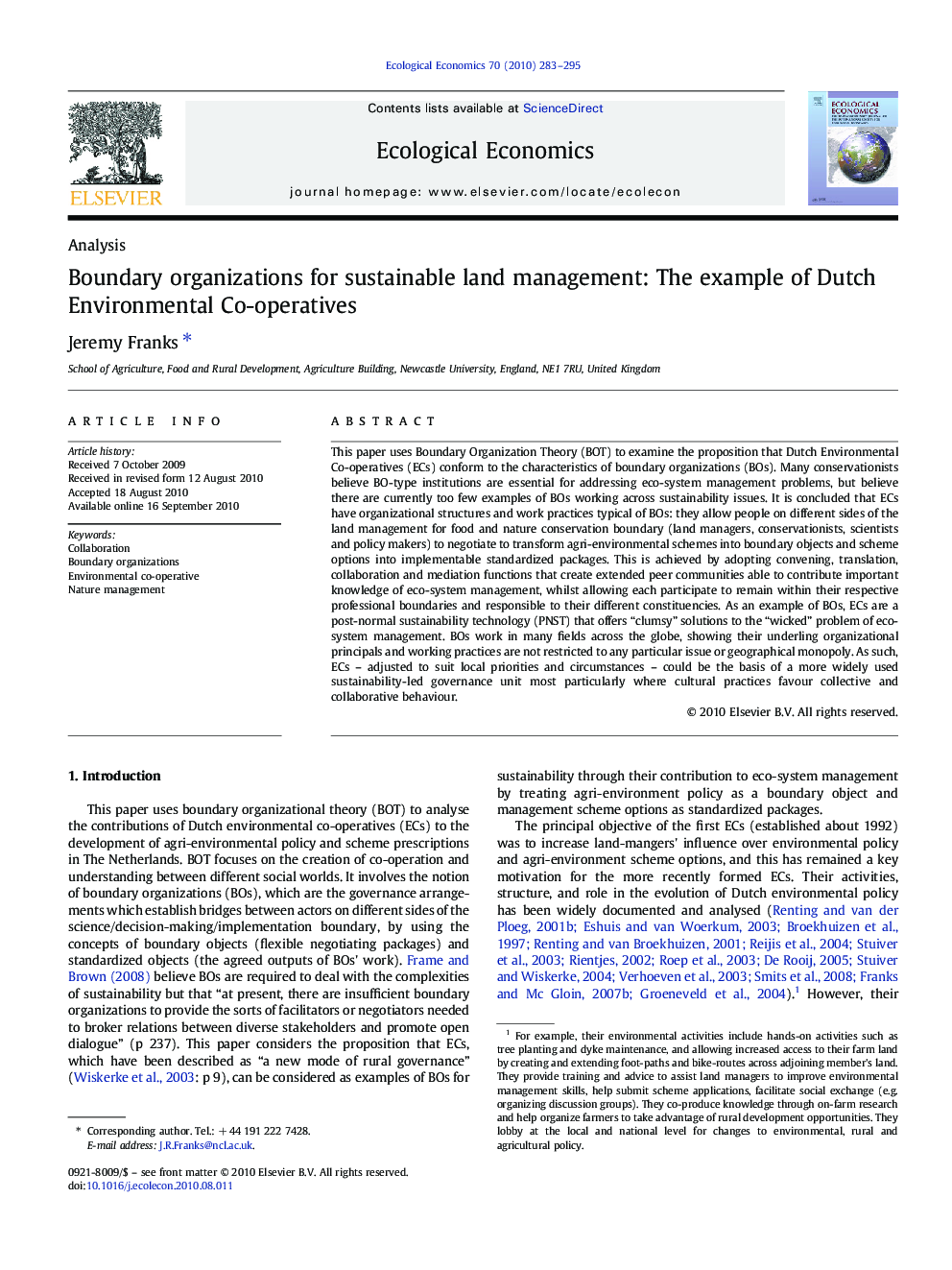| کد مقاله | کد نشریه | سال انتشار | مقاله انگلیسی | نسخه تمام متن |
|---|---|---|---|---|
| 5050913 | 1371105 | 2010 | 13 صفحه PDF | دانلود رایگان |
عنوان انگلیسی مقاله ISI
Boundary organizations for sustainable land management: The example of Dutch Environmental Co-operatives
دانلود مقاله + سفارش ترجمه
دانلود مقاله ISI انگلیسی
رایگان برای ایرانیان
کلمات کلیدی
موضوعات مرتبط
علوم زیستی و بیوفناوری
علوم کشاورزی و بیولوژیک
بوم شناسی، تکامل، رفتار و سامانه شناسی
پیش نمایش صفحه اول مقاله

چکیده انگلیسی
This paper uses Boundary Organization Theory (BOT) to examine the proposition that Dutch Environmental Co-operatives (ECs) conform to the characteristics of boundary organizations (BOs). Many conservationists believe BO-type institutions are essential for addressing eco-system management problems, but believe there are currently too few examples of BOs working across sustainability issues. It is concluded that ECs have organizational structures and work practices typical of BOs: they allow people on different sides of the land management for food and nature conservation boundary (land managers, conservationists, scientists and policy makers) to negotiate to transform agri-environmental schemes into boundary objects and scheme options into implementable standardized packages. This is achieved by adopting convening, translation, collaboration and mediation functions that create extended peer communities able to contribute important knowledge of eco-system management, whilst allowing each participate to remain within their respective professional boundaries and responsible to their different constituencies. As an example of BOs, ECs are a post-normal sustainability technology (PNST) that offers “clumsy” solutions to the “wicked” problem of eco-system management. BOs work in many fields across the globe, showing their underling organizational principals and working practices are not restricted to any particular issue or geographical monopoly. As such, ECs - adjusted to suit local priorities and circumstances - could be the basis of a more widely used sustainability-led governance unit most particularly where cultural practices favour collective and collaborative behaviour.
ناشر
Database: Elsevier - ScienceDirect (ساینس دایرکت)
Journal: Ecological Economics - Volume 70, Issue 2, 15 December 2010, Pages 283-295
Journal: Ecological Economics - Volume 70, Issue 2, 15 December 2010, Pages 283-295
نویسندگان
Jeremy Franks,